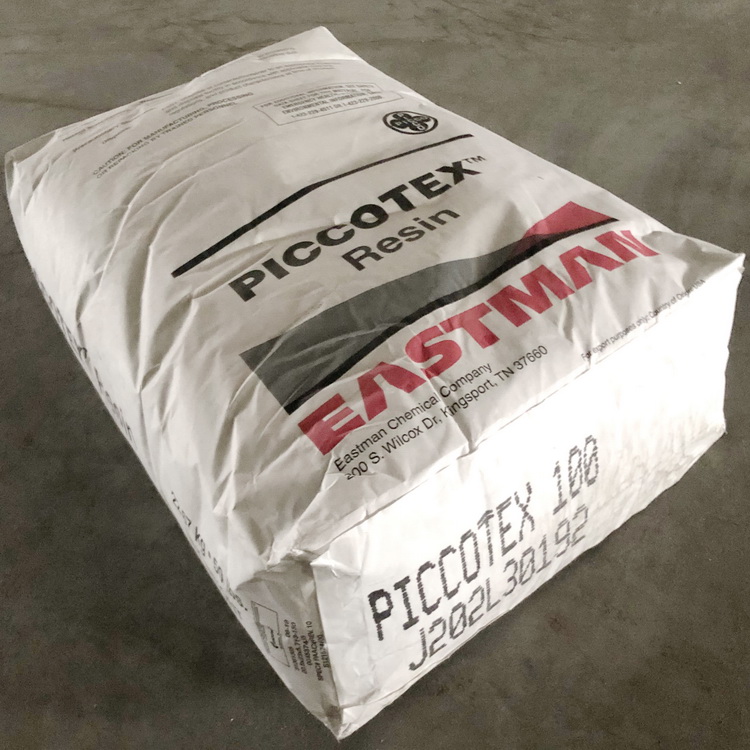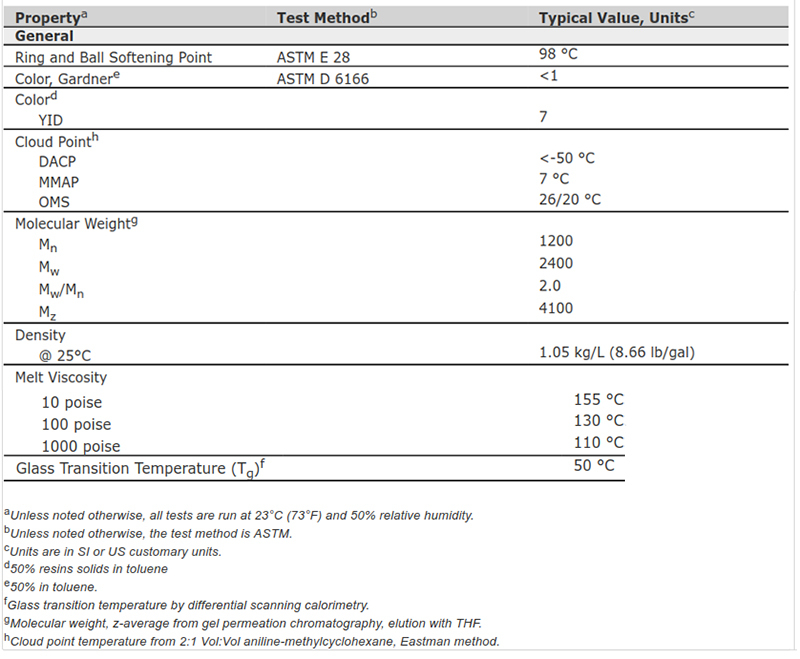
Piccotex 100
- Technical Data Sheet Piccotex? 100 Hydrocarbon ResinApplicationsA···
Technical Data Sheet Piccotex? 100 Hydrocarbon Resin
Applications
Adhesives/sealants-b&c
Bookbinding
Carpet construction
Case & carton sealing closings
Casting wax
Commerical printing inks
Concrete
Film modification
Labels non food contact
Marine
Packaging components non food contact Packaging tape
Polymer modification
Protective coatings
Roofing
Specialty tape
Tape non food contact
Tires
Key Attributes
Excellent thermal stability
Intermediate softening point
Made from purified aromatic monomers Water-white initial color
Product Description
Piccotex? 100 hydrocarbon resin is the medium softening point member of in a series of highly stable, water
white, thermoplastic materials based on purified aromatic monomers. These resins have outstanding hot tack;
heat sealability; resistance to discoloration; acid, alkali, and moisture resistance; and stability to elevated temperatures encountered in compounding. High initial and retained gloss, and improved application speeds on curtain coating and roll coating equipment. Piccotex? 100 complies with some FDA regulations for applications involving direct contact with food. Compliance with a given regulation in a specific situation should be verified prior to use in a food contacting application.
Typical Properties

Compatibility and Solubility
Compatible
in useful proportions with paraffin, chlorinated paraffin,
microcrystalline waxes, low molecular weight polyethylenes, high styrene
resins, vinyl toluene polymers, ethylene-vinyl acetate (EVA)
copolymers, and many common plasticizers. Soluble in aliphatic,
aromatic, and chlorinated hydrocarbons; ethers; esters; nitroparaffins;
and benzyl alcohol. Insoluble in lower alcohols, glycols, and water. For
low or zero VOC systems Piccotex? 100 is soluble in the VOC exempt
solvents t-butyl acetate and perchlorobenzenetetrafluoride (PCBTF) and
will tolerate some acetone and/or methyl acetate as a diluent in
ssolvent systems based on TBA and/or PCBTF. VOC exemptions and
environmental regulations vary regionally and compliance with local
standards should be verified before any claims about VOC content are
made.
Packaging
Pastilles, in multi-wall paper bags (50 lbs, 22. 7 kg net wt).
Storage
Due to the thermoplastic behavior, pastillated and flaked resins may fuse, block or lump. This can be accelerated under any of the following conditions: 1) above ambient temperature, 2) prolonged storage, 3) pressure, e.g., stacking pallets, or a combination of these conditions. This is particularly applicable for low softening point resin grades.
In order to maintain the flake or pastille shape, we therefore recommend storing the material in a temperature-controlled area, be careful with stacking material or applying pressure and preventing prolonged storage.
It should be noted that lumping does not have a negative impact on the product specifications. Due to the nature of the product, claims regarding lumping cannot be accepted.
Resins are prone to gradual oxidation, some more so than others. This could result in darkening and/or it could have an adverse effect on the solubility of the resin in organic solvents or on its compatibility with polymers. Accordingly, it is recommended that strict control of inventory be observed at all times, taking care that the oldest material is used first.



 精細化學(xué)品
精細化學(xué)品



